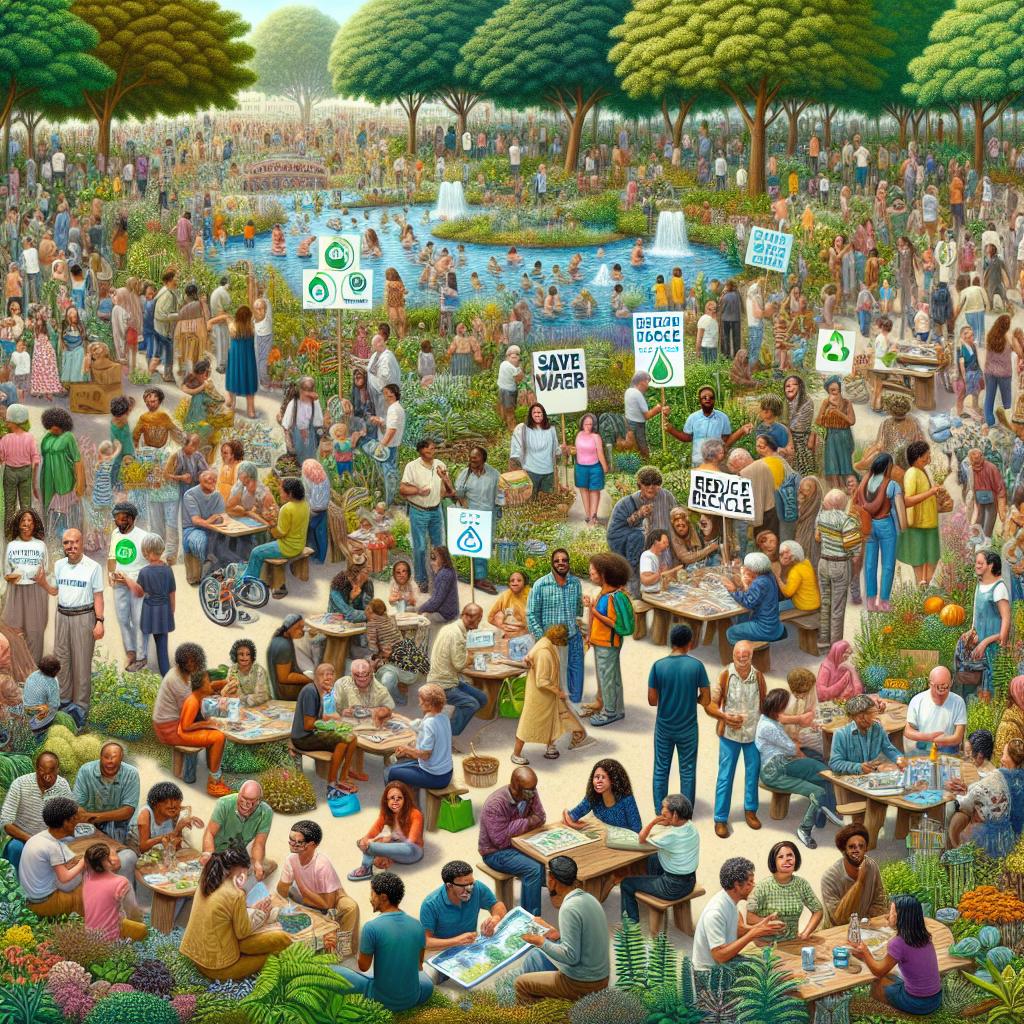Greening Our Future

In today's world, the call for eco-friendly practices and sustainable living has never been louder. As the consequences of climate change become increasingly apparent, it's up to each and every one of us to make a difference - from the smallest changes in our daily lives to the largest initiatives from corporations. In this article, we will explore several key topics that can help pave the way for a greener, more sustainable future: eco-friendly practices, water conservation, recycling, sustainable production and consumption, climate-smart agriculture, green business, food security, and the role of individuals.
First and foremost, let's discuss the importance of eco-friendly practices. By implementing simple yet effective changes in our daily routines, we can significantly reduce our carbon footprint and contribute to a more sustainable world. This could be as simple as turning off lights when leaving a room, using reusable shopping bags, or carpooling to work. Every little bit helps!
One crucial eco-friendly practice that deserves special attention is water conservation. With water scarcity becoming a pressing issue in many parts of the world, it's essential to be mindful of our water usage. Simple steps, like fixing leaks, taking shorter showers, and using rainwater for gardening, can make a significant difference. Moreover, being conscious of the water requirements of the products we consume and support companies that prioritize water conservation in their processes is a powerful way to make an impact.
Another essential aspect of sustainable living is recycling. According to the United States Environmental Protection Agency (EPA), recycling one ton of paper saves 17 trees, 7,000 gallons of water, and 463 gallons of oil. The importance of recycling goes beyond just paper; it applies to all types of materials, from plastic bottles to aluminum cans. By making recycling a habit and properly sorting our waste, we can reduce the amount of waste that ends up in landfills and help preserve natural resources.
Sustainable production and consumption is another critical area where change is needed. This concept revolves around creating products and services in a way that minimizes environmental impact while ensuring that they meet the needs of the present without compromising the ability of future generations to meet their own needs. This can be achieved by adopting circular economy principles, reducing waste, and using renewable resources.
Another topic that requires our attention is climate-smart agriculture. With the world's population projected to reach 9.7 billion by 2050, it's essential to find ways to feed everyone while minimizing the environmental impact of agriculture. Climate-smart agriculture practices, such as agroforestry, conservation agriculture, and precision agriculture, can help increase productivity, improve resilience to climate change, and reduce greenhouse gas emissions.
Green business is another powerful force for change. Companies have a significant impact on the environment, and many are now recognizing the importance of adopting eco-friendly practices. This can range from using renewable energy, implementing circular economy principles, and reducing waste, to investing in R&D for sustainable technologies and supporting sustainable production and consumption. These green initiatives not only help reduce a company's carbon footprint but also appeal to consumers who are increasingly concerned about the environment.
Food security and sustainability is an essential topic that is closely related to all the previous topics. Ensuring that everyone has access to nutritious food while minimizing the environmental impact is a complex challenge. Solutions include supporting small-scale farmers, investing in sustainable agriculture practices, reducing food waste, and promoting plant-based diets. By working together on these issues, we can create a more sustainable and equitable food system.
Last but not least, the role of individuals in promoting eco-friendly habits and behaviors cannot be overstated. Each one of us has the power to make a difference, from the choices we make as consumers to the actions we take in our daily lives. By spreading awareness about eco-friendly practices, supporting companies that prioritize sustainability, and making small changes in our own lives, we can collectively contribute to a greener, more sustainable future.
In conclusion, the topics of eco-friendly practices, water conservation, recycling, sustainable production and consumption, climate-smart agriculture, green business, food security, and the role of individuals are all interconnected and play a crucial role in creating a sustainable future. By taking action on each of these fronts and working together, we can make a significant impact and leave a better world for future generations. Let us all do our part and green our future!




